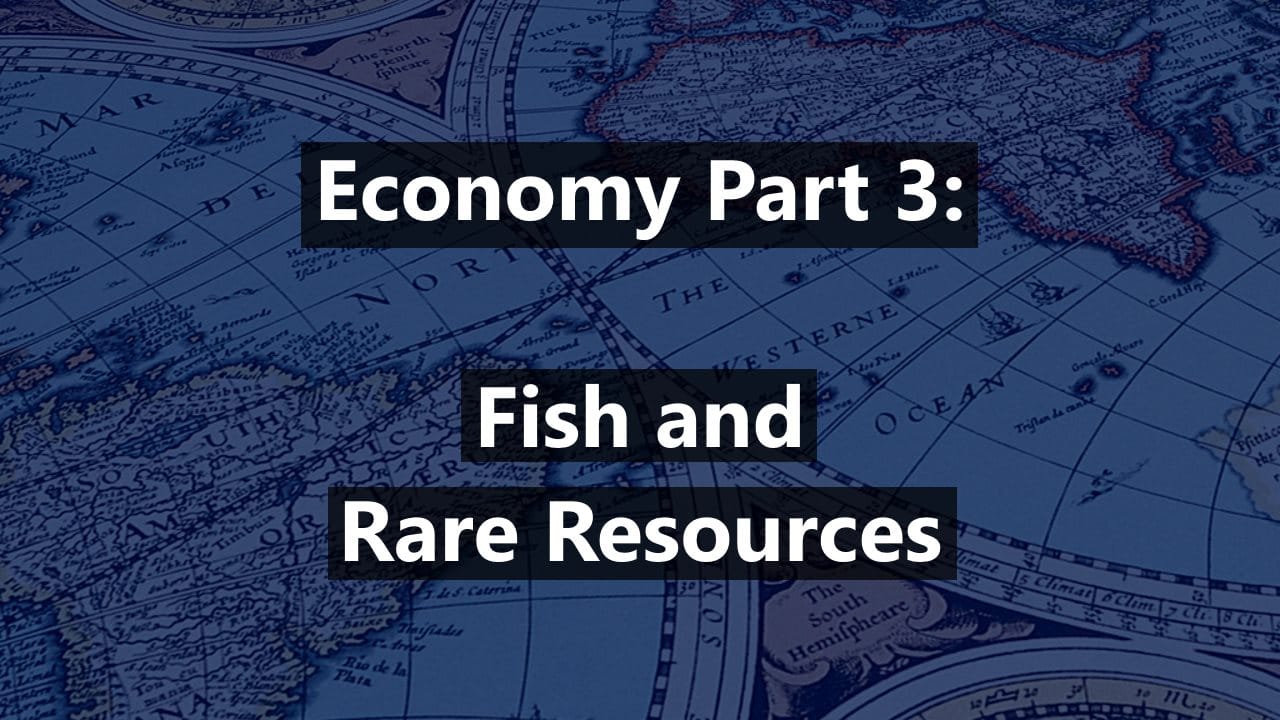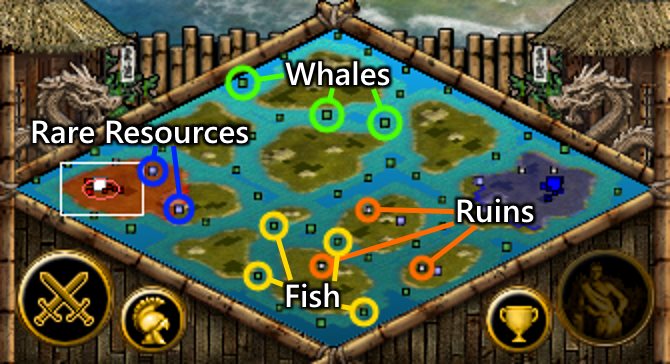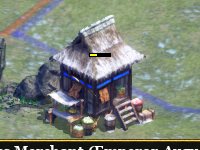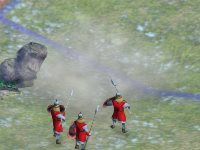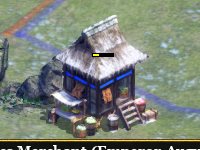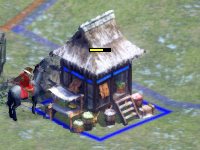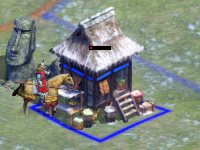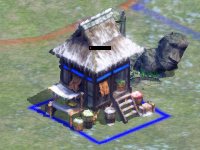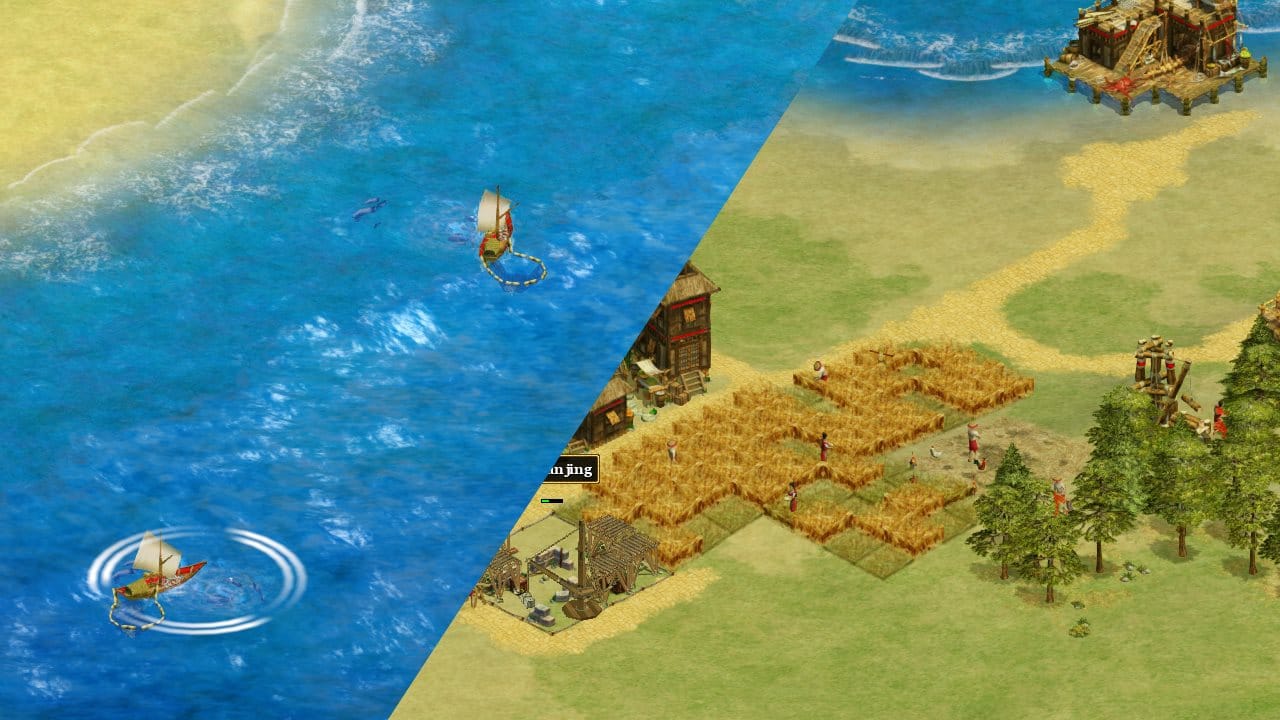Rare resources are a secondary resource available alongside the likes of basic (primary) resources such as Food. They provide a way to supplement other economic production, either by building on existing strengths, or helping to shore up weaknesses. Sometimes they can also create new strengths, allowing you to utilise strategies that might not otherwise have been viable options.
Rare Resources Rundown
Much like with trees and mountains, each rare resource provides no innate economic benefit if not explicitly interacted with. Rares are gathered by deploying a Merchant (built from a Market) directly next to the rare resource. Merchants can’t deploy in water, so the two water-exclusive rares are instead gathered by deploying Fishermen (built from a Dock) in the same manner that Merchants are deployed on land.1
Only one Merchant or Fishermen per nation can gather at each rare resource, but there’s no hard cap on the number of nations that can simultaneously gather from any one rare. Each nation will receive the full benefit of the rare (the resources are not shared between Merchants / Fishermen), and Merchants can be deployed regardless of whether the rare resource and/or themselves are in friendly, neutral, or even enemy territory (but you’ll still have to worry about attrition and the Merchant’s safety).
Land-based rares will show up on the minimap as blue-ish squares like in the image below. Sea-based rares (Fish and Whales) show up as green squares, with Whales being larger squares and Fish being smaller squares. All of these are distinct from Ruins, which show up as small white squares.
Most rares are available right from the start of game,2 but there are a handful which remain hidden until either Age 4 or Age 6. Until you reach the required age, those rares will simply appear as a patch of Rocks so that you don’t accidentally build on top of them, similar to the way that Oil does before Industrial Age except that the whole patch of Rocks will be replaced by the rare (instead of it appearing on top of the Rocks).
The base income for rare resources is either +10/+10 of two different resources or +20 of just one.3 The resources you get are always based on what the rare is, i.e. Cotton will always provide Timber, and never provide Food. The rares that are unlocked in later ages can provide more than just +10/+10 or +20 – for example Gunpowder Age’s Sulphur provides +15/+15 Wealth and Metal, while Industrial Age’s Titanium provides +20/+20 Food and Oil.
The Taxation line of technologies at the Temple will increase the gather rate of all of your Merchants (for land-based rares) and the non-Food gather rate for Fishermen. At first the increase is rather small (+20% after the first tier of research), but it becomes more significant with each tech level, culminating in a +200% bonus once you’ve researched Income Tax.
| Taxation research | (Requiring Civic Tech level) | Rare Resource gather rate |
|---|---|---|
| Taxation | Civic 1 | +20% |
| Vassalage | Civic 3 | +50% |
| Social Contract | Civic 5 | +100% |
| Income Tax | Civic 6 | +200% |
The Porcelain Tower will also increase gather rate of rare resources in your territory by 200% independent of Temple research, while the Nubians have an innate bonus of +50% gather rate on rares in friendly territory. These bonuses will all stack additively, not multiplicatively. For example, playing as Nubians with Income Tax researched:
100% (base rate) + 200% (Income Tax) + 50% (Nubians bonus) = 350%
The unique bonus effects of rare resources cannot be increased by any means – the above increases from Taxation etc apply only to the basic resource income. Friendly territory also doesn’t include lakes / ocean, which is always considered neutral territory for the purposes of these benefits.
Same Numbers, Different Values
Although rares all follow the same rule of one unique bonus + a base amount of resource income, their actual value to you will vary – some rares are just generally stronger than others. For example, I would consider Spice to usually be less valuable than Peacocks or Salt.
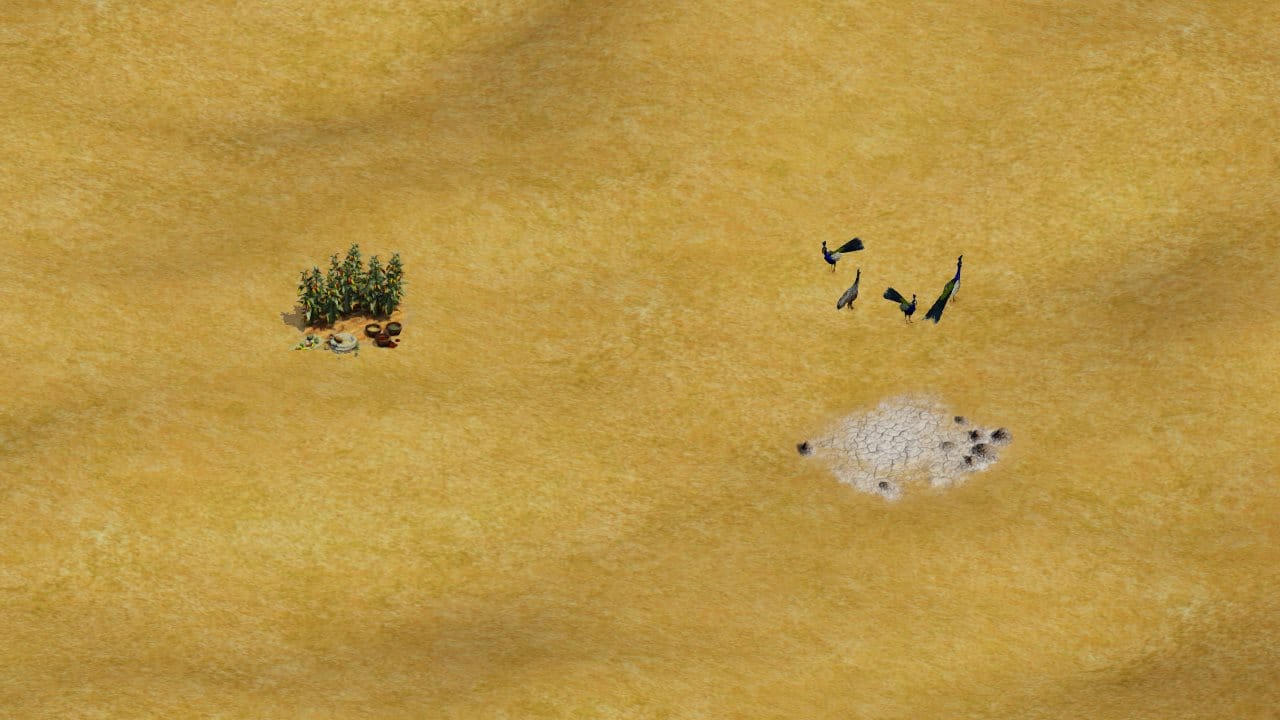
Some of this difference in value is inherent to the rare resource itself, whether due to the basic resources given (You may value 10 Wealth more than 10 Metal for example), or because some of the unique bonuses just aren’t as impactful in typical games.
Other times the value of the rare depends a lot on your strategy. Naturally if you’re not building wonders, Marble’s effect of reducing the cost of Wonders by 10% doesn’t matter and it becomes simply a minor source of Timber and Metal. Citrus (ships at sea heal automatically) is incredibly convenient for naval battles, but is a paltry +10/+10 Food and Timber on most land maps.
Some nations can stack a rare resource bonus with their own nation powers to really double down on the effect (e.g. Chinese + Papyrus, Japanese + Salt), while other times a nation power’s effect might actually decrease the value of the rare resource (e.g. Chinese + Wool, Lakota + Bison).
When you put all these factors together, there’ll be some rares which you might find are not even be worth spending the resources to send a Merchant to, while others might be worth all-out fighting for to defend or deny them from your opponent. Most fall somewhere in between these two extremes, where you’ll be happy to commit a Merchant but not your whole army.
Between slow pack/unpack times, low durability, low speed, and no self-defense capabilities,4 Merchants are prime targets to raid and harass. For valuable rares you’ll want to try to ensure there are nearby structures or units to ensure their safety. You may also want to send small raiding parties to pick off enemy Merchants – just remember that some military units are better at damaging civilian targets than others. You also have to worry about enemy defenders chasing you off, which means you need to weigh in factors such as speed and durability.
* Tested using Classical Age (II) military units attacking deployed Merchant for approx 10 seconds.
** Factors in Range, Durability, Speed, and Speed of possible counter units.
*** Notice that the remnants of Merchant’s hut aren’t even in the screenshot; the Heavy Infantry destroyed it in something like 5-6 seconds flat.
If you’re after a self-sufficient Merchant raider it’s hard to do better than a Heavy Cav, but just about anything can do in a pinch. Even Light Cav has its own strength despite its low damage dealt, since its high speed means it’s the unit least likely to die if you run as soon as you notice defenders.
Fish and Whales
Although Fish and Whales technically fall under the category of rare resources and function quite similarly to them, they’re also somewhat different to land-based rares. As mentioned previously both of these are gathered using Fishermen instead of Merchants, which also cost just Timber instead of a Merchant’s Timber + Wealth.
Beyond that they’re also not really.. rare. On sea maps (or land maps with high amounts of water such as Great Lakes) you might find a couple dozen instances of Fish depending on the map size – they’re really more of a “common resource” than a rare resource. Fish is also the only rare resource that’s solely there to for the sake of getting basic resources, as it provides no unique benefit unlike all other rare resources. Whales are closer to a “proper” rare resource, being overall much less common than Fish and also having a unique bonus effect like “normal” rares (All of your naval units move 20% faster).
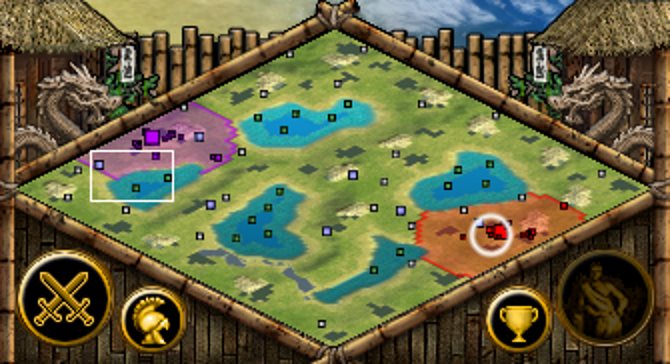
As touched on during the discussion about Merchants, Taxation research at the Temple will increase the non-Food gather rate of Fishermen in addition to increasing the general gather rate for said Merchants. For Fish this will increase the amount of Wealth you get, and for Whales this will increase the amount of Metal you get.
The Food gather rate of Fishermen actually increases with Agronomics research at the Granary, the same tech that improves the gather rate of Farms. Note that unlike with Farms, simply having a Granary (with no technology researched) actually has no effect on the Food output of Fishermen.
| Agronomics research | (Requiring Science Tech level) | Food-only Fishermen gather rate |
|---|---|---|
| None (just Granary) | Science 2 | +0% (no effect) |
| Agriculture | Science 3 | +50% |
| Crop Rotation | Science 4 | +100% |
| Food Industry | Science 6 | +200% |
Early Game: Fish vs Farms
When you’re playing on a map where you have access to water masses (e.g. sea maps, Great Lakes), you have the option to go to replace some or all of your early Farms with Fishermen instead for your Food production. Here are a few comparison points between the two routes:
- Commerce1 is required for a Dock, which tends to make Farms much faster to get up and running.
- Fishermen cost less Timber than Farms but provide the same amount of Food income, making them more cost efficient.5
- Farms provide a completion bonus of 20 Food compared to no completion bonus for Fishermen. However, Farms also require a Citizen to produce any further Food, whereas Fishermen are purely a Timer investment once you’ve gotten a Citizen to build the Dock. This tends to favor Fishermen because the Food cost of a Citizen is greater than the completion bonus of a Farm.
- Fish provide a very significant increase to early Wealth income, whereas Farms have no impact on Wealth.6
- Although a Market costs 10 more Timber than a Dock (80 vs 70), it also passively provides +10 Wealth income and allows you to build Merchants / Caravans. If you have a particularly strong rare resource nearby at the start of the game this may be a significant upside for you.
- Fishermen can sometimes be safer than Citizens on Farms, such as on Great Lakes where they’re safely sheltered in an isolated mass of water. Other times Fishermen might be in harm’s way, such as on most sea maps and African Watering Hole. This means that the map can have a significant influence on the safety of using Fishermen – if you take losses from a hostile navy it completely negates the potential benefit of using Fishermen in the first place. Unlike Citizens who can simply drop what they’re doing and run into a City, Fishermen need to first pack up before they can flee.
- Reliability of Fish can be a concern unless you’ve thoroughly scouted the nearby water masses. If you spend a long time finding where the Fish is (or get particularly unlucky on Great Lakes and actually just have none spawn in your lake), it greatly hurts their lead in economic timing.
| Fish pros: | Fish cons: | Mixed points |
|---|---|---|
| Fishermen cheaper than Farms | Commerce 1 required | Safety of Fishermen can be better or worse than citizens on Farms |
| Don't require a Citizen for income | No Food completion bonus | |
| Also gather Wealth | Market (instead of Dock) enables Merchants / Caravans, and also provides innate Wealth income | |
| Dock slightly cheaper than Market | Reliability can be an issue; either bad luck on Fish spawns or bad luck on finding existing Fish |
Running the numbers and doing some tests, I believe it to be favorable to typically use Fish when available. Even if you put a low value on early Wealth production for the sake of a fairer comparison, Fish still usually outpace Farms by virtue of being cheaper to get up and running.
Realistically though, early Wealth can be extremely valuable. It allows you to get more Science / Universities / Scholars early to boom faster, or more Archers and Heavy / Ranged Cavalry to boost your military strength. This tends to make Fish a significantly better choice than Farms if you can utilise them safely. In particular, getting a quick Science 2 before aging up can be a real boon to your Classical Age (II) economy.
There are three major exceptions to Fish > Farms that I can think of where you may want to simply use Farms instead:
- If you really need the no-fuss reliability of guaranteed income from Farms, perhaps because you’re rushing and don’t want to sink resources into Com1.
- When you’re trying to border push ASAP, in which case a second City (for more Farms) is actually a major advantage instead of being somewhat cumbersome.
- If you’re unable or unwilling to commit to defending sources of Fish in contestable locations. When you factor in the cost of a defending naval force, it might be more cost effective to not utilise high-risk fishing in your economic strategy.
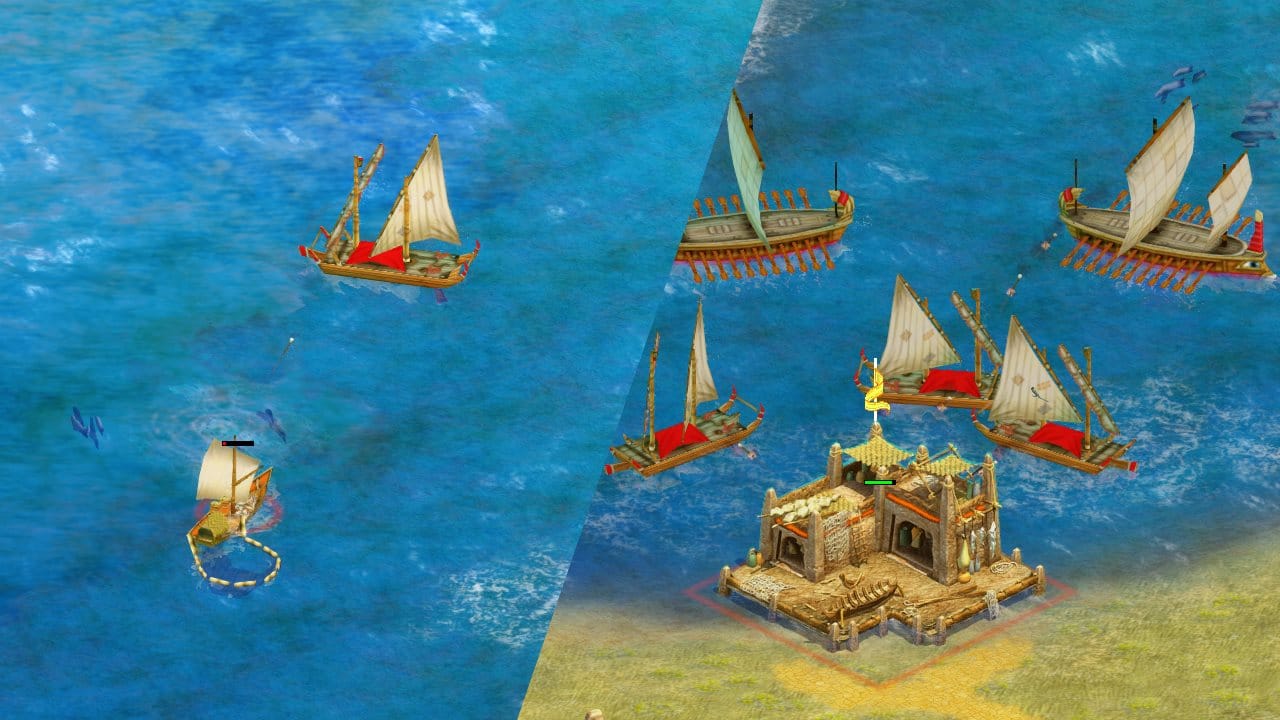
Other articles in this series:
- Part 1: Basic Resources
- Part 2: General Concepts
- Part 4: Enhancement / Amplifier Buildings
- Supplementary: Demystifying Caravans
- The Porcelain Tower can also allow you to you receive the bonus ability of all rare resources in friendly territory (even if you don’t have a Merchant there), but for the most part you’ll be using Merchants and Fishermen.
- Although you’ll still need the first Commerce tech in the Library to build the Market/Merchants
- If the rare provides Knowledge or Metal, you still need the prerequisite tech to be able to actually gain any of that basic resource from the rare resource, which for most nations means you need Classical Age to gain the full benefit of that rare resource.
- Barring the Dutch, at least.
- Assuming default rules, not Nomad.
- Except for the Egyptians, but even that’s fairly minor by comparison.
